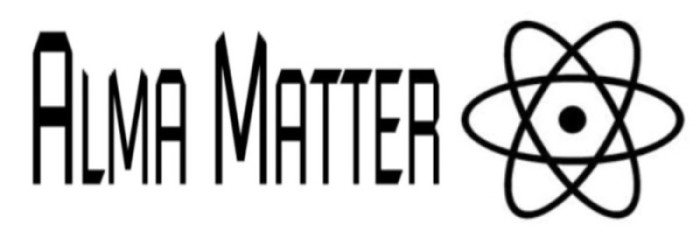Welcome back to school, Tribe! I can’t tell you how great it is to see people roaming campus again. I’ve been holding down the fort here all summer conducting research (aka taking psychedelic pictures of mouse brains; more on that in a future post), and working the 8-5 grind for three months; a 13 credit schedule and a new, tanned College of William and Mary population is sweet relief. This was my second summer of research, and the term “graveyard shift” is a pretty accurate description for this time of year. Particularly when the lab you work in requires constant dim lighting. It was productive, educational and rewarding, and I plan on doing it all over again. But thank god for a fresh schedule.
Alma Matter’s second semester is looking downright bountiful. By this, I mean that after spending an entire summer with no one but other campus researchers, I’ve been more inspired by our local scientists than ever before, and a number of exciting projects have piqued my interest that I can’t wait to explore. First on the docket: Dr. Michael Deschenes’ expansive kinesiology research group. This lab dabbles in microscopy, human performance and neuroendocrine systems, so I’m not really sure what I’m getting into with this one, but I’m sure that whichever portion of his work I delve into will provide new insights into how the human body addresses physical stress. This is definitely something to get excited about for next week.
As for this post, since the first four days of school did not lend themselves well to a new investigation, I’ve put together something else: Alma Matter’s Favorite Things (if it’s good enough for Oprah….).
Think of it as a roundup of good stuff for those (everyone) who appreciate the beautiful, liberal-artsy moments when science and imagination coalesce in astounding ways.
Alma Matter’s Favorite Things (in no order)
Person → Oliver Sacks
This past Sunday, the world lost a singularly poetic and moving voice for neuroscience – the author of acclaimed case histories such as “The Man Who Mistook His Wife for a Hat,” and “Awakenings.” Read his books, listen to his interviews, learn about the kind of doctor he was and get an idea of what it would be to live deftly and compassionately at the intersection of science and art.
Book → “The Disappearing Spoon: And Other True Tales of Madness, Love, and the History of the World from the Periodic Table of the Elements” by Sam Kean
Has your relationship with chemistry fallen into a rut? Pick up this book to rekindle that old flame. All the mood enhancing effects of lithium, without the kidney damage.
Podcast → Radiolab
NPR produces a lot of great media, and this is the cream of the crop. Expect to ask yourself questions like: “Why aren’t more people talking about this?” or “Why didn’t I learn this in school?” You’ll find yourself doing so a shocking number of times as they report science news and history with all the devices of a masterfully told story.
Method: CRISPR-Cas9
The acronym stands for “clustered regularly interspaced short palindromic repeats,” and Cas-9 refers to a protein that makes this system work. Without getting into too much detail (I’ll let you Google it), this new means of engineering genetic code using pieces of the prokaryotic immune system will likely go down as one of the most iconic and polarizing biological advances of our time. This system has the potential to bring the woolly mammoth back to life and cure genetically inherited diseases, including cancer. It’s an extremely powerful tool that could easily get out of hand, and it’s currently forcing us to confront some very profound bioethical questions.
Blog→ Design Milk
Scroll through this architecture, style, art and engineering feed to see how to better integrate science and technology into your aesthetic.
Movie→ “Particle Fever”
This documentary describes the massive undertaking that was preparing the Large Hadron Collider at CERN in Geneva, Switzerland for a series of experiments that culminated in the discovery of the Higgs Boson.
YouTube→ Veritasium
This channel is a one-stop shop for your scientific viewing pleasure; whether you’re looking to prepare for a physics exam or to bust some of your friends’ misconceptions or brush up on millennial philosophy. In a recent video, The Greatest Delusion, the host declares, “The sense that your soul is eternal makes you cowardly, because failure would stick with you forever.”
Performance→ Sarah Jones
As her TED bio page describes: “She’s a Tony Award-winning monologist, UNICEF ambassador, firebrand and FCC-fighting poet — Sarah Jones assumes as many roles offstage as on.” Her TED performances are politically charged, sometimes biting and always authentic. In her monologues, Jones personifies “stereotypical identities” of our time and answers scientific and ethical questions that future generations will continue to ask. She has a unique style, but her messages are universally resonant.

